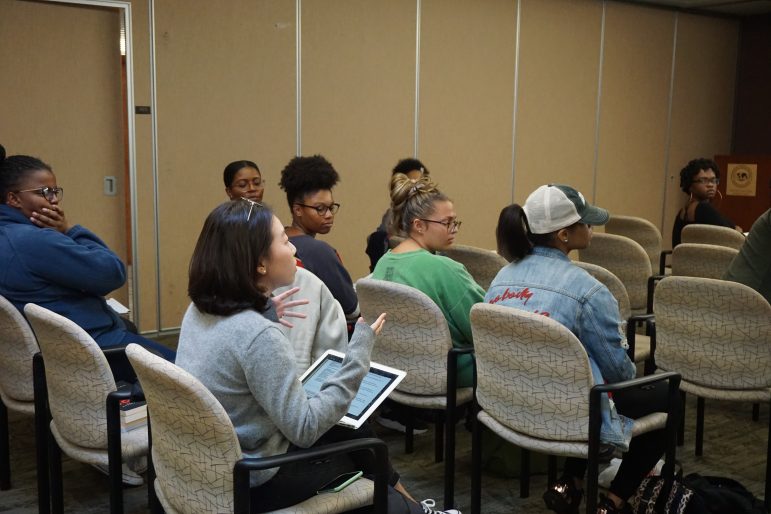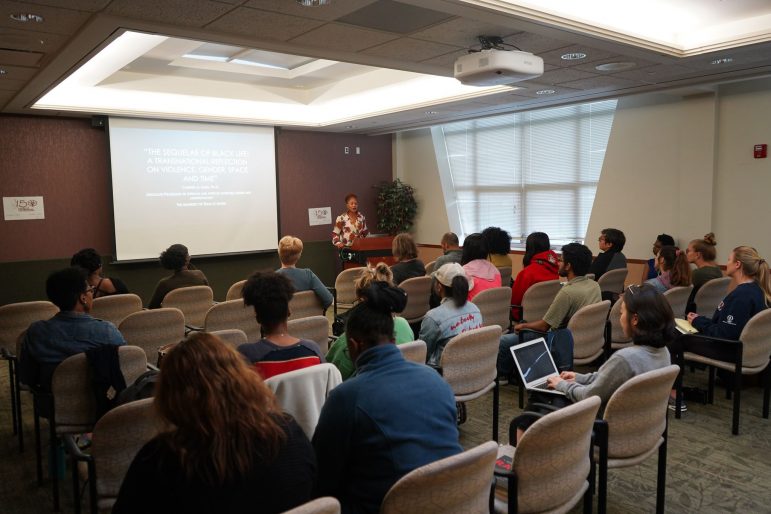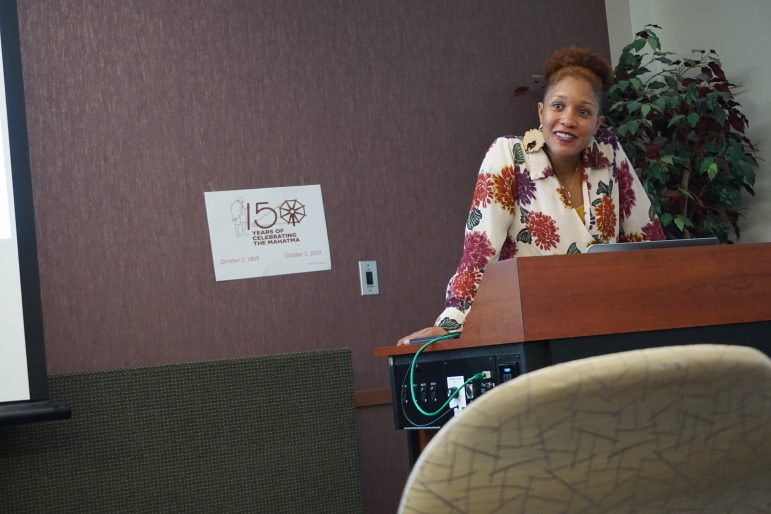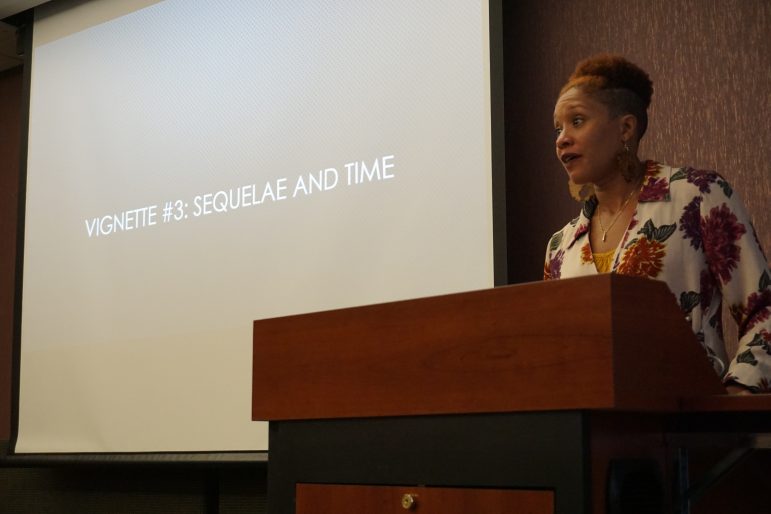Professor Christen Smith came to Michigan State University on Oct.3 to present a lecture on anti-Black state violence and the global issue surrounding this topic in Brazil and the Americas. The lecture was sponsored by the Center for Latin American and Caribbean Studies, Year of Global Africa and James Madison College.
Christen Smith is an associate professor at The University of Texas at Austin, an author and an advocate for anti-Black state violence. The talk was called The Sequelae of Black Life: A Transnational Reflection on Violence, Gender, Space and Time.
Smith’s lecture was told in three series of vignettes, a method of lecturing called dialectical montage. She started the lecture by speaking from her book, Afro-Paradise: Blackness, Violence, and Performance in Brazil. She shared the story of a young boy who was the face of the tourist industry in Bahia, Brazil. Although he was a positive icon in Bahia, he was tragically killed in his home by the military police.
The second vignette was more personal as she told the audience what happened when police stopped her in Brazil.
“I was just another expendable Black woman out of place,” Smith said.
She connected her story to Sandra Bland, a Texan woman whose traffic stop resulted in death, and a woman in Brazil who was beaten by police officers, who also ignored gender protocol when frisking her.
The final vignette gave examples of how neighbors and loved ones are affected when tragedies occur in their community.
The government should be required to give community and family members healthcare because they too are affected, Smith said.
The end of the lecture was opened up for Q&A. Students and faculty of MSU asked questions based on the lecture on how they can think more transnationally.
Remember that police go international and have a direct connection with other police forces, be aware of things going on outside of the United States, she said.
Other questions were more personal about Smith’s work and how she deals with the danger she is subjected to when conducting research as a Black woman.
The audience was impacted by her lecture, some leaving emotional and others introducing themselves to Smith at the end to thank her for her work on this topic.
Smith also connected police violence to other issues of inequality.
“Police violence is like poison in the water,” Smith said relating the issue to Flint, Michigan.

Audience member asks a question during the question and answer of the lecture. (Photo/ Yue Jiang) 
Audience members settle in before Christen Smith began her lecture on anti-Black state violence. (Photo/ Yue Jiang) 
Christen Smith answering questions from audience members after the lecture. (Photo/ Yue Jiang) 
Christen Smith lecturing at the International Center at Michigan State University on Thursday Oct. 3, 2019. (Photo/ Yue Jiang)
Director, Center for Latin American and Caribbean Studies